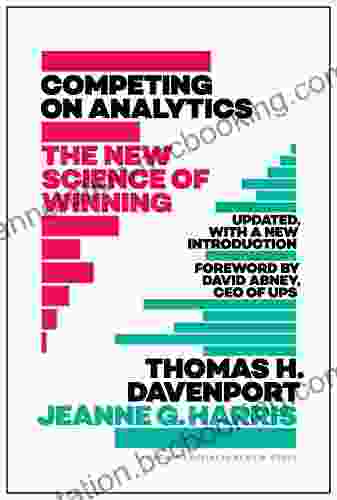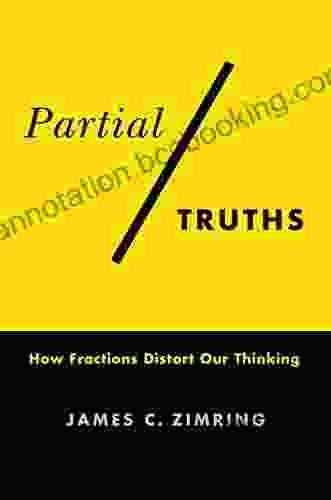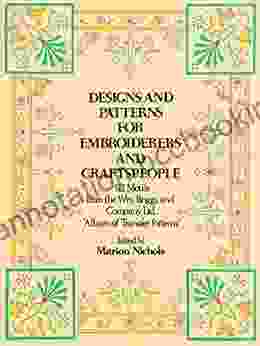Partial Truths: Uncover the Distortions in Your Thinking with Fractions

In the realm of mathematics, fractions hold a prominent place. From dividing a pizza fairly among friends to calculating the distance between stars, fractions play a crucial role in shaping our understanding of the world around us. However, beneath their seemingly innocuous appearance lies a hidden danger – the potential to warp our thinking.
In his captivating book, "Partial Truths: How Fractions Distort Our Thinking," author Ian Stewart delves into the fascinating and often counterintuitive world of fractions. With wit and clarity, he exposes the hidden biases that fractions introduce into our reasoning and how these biases can lead us astray. This thought-provoking work challenges our assumptions about the nature of reality and offers a fresh perspective on the role of mathematics in our understanding of the world.
5 out of 5
| Language | : | English |
| File size | : | 3782 KB |
| Text-to-Speech | : | Enabled |
| Screen Reader | : | Supported |
| Enhanced typesetting | : | Enabled |
| Word Wise | : | Enabled |
| Print length | : | 392 pages |
Distorting Reality: The Illusion of Precision
One of the most insidious ways fractions distort our thinking is by creating an illusion of precision that is often unfounded. When we assign a fractional value to something, we imply a level of accuracy that may not always be warranted. For instance, saying that the probability of winning a lottery is 1/100 implies a false sense of certainty. In reality, the actual probability may vary considerably depending on factors such as the number of tickets sold and the drawing mechanism.
This illusion of precision can lead to overconfidence and misguided decision-making. By relying too heavily on fractional values, we may overlook important qualitative factors that could significantly alter the outcome of a situation. For example, relying solely on the probability of winning a lottery without considering the potential consequences of losing could lead to poor financial decisions.
The Tyranny of Averages: Obscuring Individuality
Another way fractions distort our thinking is through the tyranny of averages. When we calculate the average of a set of data, we create a single value that represents the "typical" value in the dataset. However, averages can be misleading, especially when applied to complex systems or individual experiences.
For instance, the average income of a population may not accurately reflect the economic conditions of individuals who fall significantly above or below that average. Similarly, the average test score in a class may not adequately capture the struggles or strengths of individual students. By focusing solely on averages, we risk ignoring the needs and experiences of those who deviate from the norm.
The Dangers of Simplification: Losing Depth and Nuance
Fractions are often used to simplify complex concepts, allowing us to represent them in a more manageable form. However, this simplification can come at a cost. By reducing a concept to its fractional parts, we may lose valuable depth and nuance.
For example, reducing the emotional experience of love to a fraction of its components, such as affection and passion, fails to capture the richness and complexity of human relationships. Similarly, trying to quantify the value of a life in terms of fractions of its economic contributions ignores the intrinsic and immeasurable aspects of human existence.
The Value of Uncomfortable Truths: Embracing Complexity
Recognizing the limitations and potential distortions introduced by fractions does not imply that we should abandon them altogether. Rather, it highlights the importance of approaching fractional thinking with a critical and nuanced perspective. By embracing the complexity and uncertainty that lie beneath the surface of fractions, we can avoid the pitfalls of distorted thinking and gain a more accurate understanding of the world.
Partial Truths challenges us to question our assumptions and explore alternative ways of representing and understanding the world around us. It encourages us to value qualitative factors, embrace individuality, and seek out deeper truths beyond the limitations of fractional thinking. Through its insightful exploration, the book empowers us to think more critically, make informed decisions, and navigate the complexities of an increasingly data-driven world.
"Partial Truths: How Fractions Distort Our Thinking" is an illuminating and thought-provoking work that uncovers the hidden dangers lurking within the看似innocent world of fractions. By revealing the ways in which fractions can distort our perception of reality, obscure individuality, and oversimplify complex concepts, Ian Stewart challenges us to rethink our reliance on fractional thinking and embrace a more holistic and nuanced understanding of the world. Whether you are a mathematician, scientist, educator, or anyone seeking to unravel the complexities of human thought, this book will provide invaluable insights and inspire you to challenge the boundaries of your thinking.
5 out of 5
| Language | : | English |
| File size | : | 3782 KB |
| Text-to-Speech | : | Enabled |
| Screen Reader | : | Supported |
| Enhanced typesetting | : | Enabled |
| Word Wise | : | Enabled |
| Print length | : | 392 pages |
Do you want to contribute by writing guest posts on this blog?
Please contact us and send us a resume of previous articles that you have written.
 Book
Book Novel
Novel Page
Page Chapter
Chapter Text
Text Story
Story Genre
Genre Reader
Reader Library
Library Paperback
Paperback E-book
E-book Magazine
Magazine Newspaper
Newspaper Paragraph
Paragraph Sentence
Sentence Bookmark
Bookmark Shelf
Shelf Glossary
Glossary Bibliography
Bibliography Foreword
Foreword Preface
Preface Synopsis
Synopsis Annotation
Annotation Footnote
Footnote Manuscript
Manuscript Scroll
Scroll Codex
Codex Tome
Tome Bestseller
Bestseller Classics
Classics Library card
Library card Narrative
Narrative Biography
Biography Autobiography
Autobiography Memoir
Memoir Reference
Reference Encyclopedia
Encyclopedia Jerry Mikorenda
Jerry Mikorenda Ruth Pavey
Ruth Pavey Rhythm Aida
Rhythm Aida Fx Holden
Fx Holden Gabe Soria
Gabe Soria Said Hasyim
Said Hasyim Gaby Morgan
Gaby Morgan Steve Ferreira
Steve Ferreira Shauna Sever
Shauna Sever Urs App
Urs App Bill Heavey
Bill Heavey James A Fain
James A Fain Sandy Camillo
Sandy Camillo Arnold Rampersad
Arnold Rampersad Richard C Wilson
Richard C Wilson Craig Martelle
Craig Martelle Hannah Dale
Hannah Dale Art Smith
Art Smith Paul Dowswell
Paul Dowswell Raghu Palat
Raghu Palat
Light bulbAdvertise smarter! Our strategic ad space ensures maximum exposure. Reserve your spot today!

 Willie BlairUpdated With New Introduction: Dive into the Enduring Legacy and Impact of...
Willie BlairUpdated With New Introduction: Dive into the Enduring Legacy and Impact of... Forrest BlairFollow ·17.3k
Forrest BlairFollow ·17.3k David BaldacciFollow ·2.6k
David BaldacciFollow ·2.6k Jaylen MitchellFollow ·16.4k
Jaylen MitchellFollow ·16.4k Edward BellFollow ·6.1k
Edward BellFollow ·6.1k Ben HayesFollow ·2.5k
Ben HayesFollow ·2.5k Branson CarterFollow ·17.6k
Branson CarterFollow ·17.6k Casey BellFollow ·7k
Casey BellFollow ·7k Bret MitchellFollow ·4.4k
Bret MitchellFollow ·4.4k

 Voltaire
VoltaireStories From The Jim Crow Museum: Unveiling the Haunting...
A Journey into the Depths of...

 F. Scott Fitzgerald
F. Scott FitzgeraldCalling Sorcery And Society: Illuminating the...
: The Alluring Embrace of Sorcery ...

 Marcel Proust
Marcel ProustBranding Bud: Unveiling the Green Rush
As the legalization...

 Henry Wadsworth Longfellow
Henry Wadsworth LongfellowColorful Dreamer: The Story of Artist Henri Matisse
Henri Matisse was a French artist...

 Adrian Ward
Adrian WardDelving into the Tapestry of Black British Identity: A...
In the realm of historical...
5 out of 5
| Language | : | English |
| File size | : | 3782 KB |
| Text-to-Speech | : | Enabled |
| Screen Reader | : | Supported |
| Enhanced typesetting | : | Enabled |
| Word Wise | : | Enabled |
| Print length | : | 392 pages |












